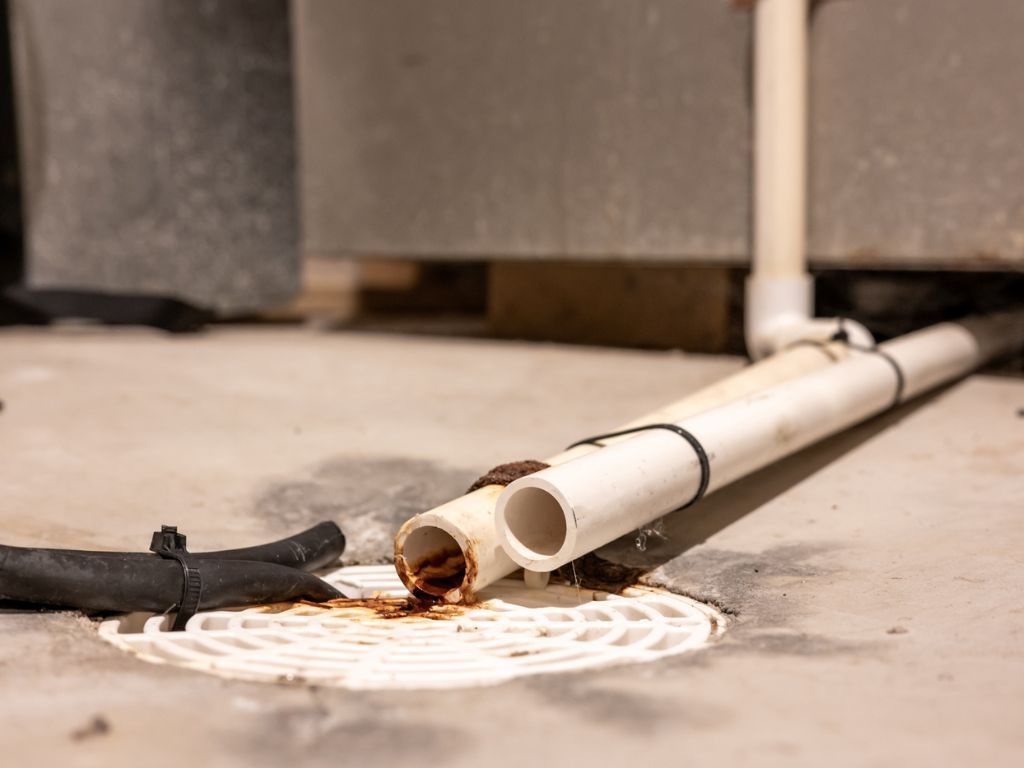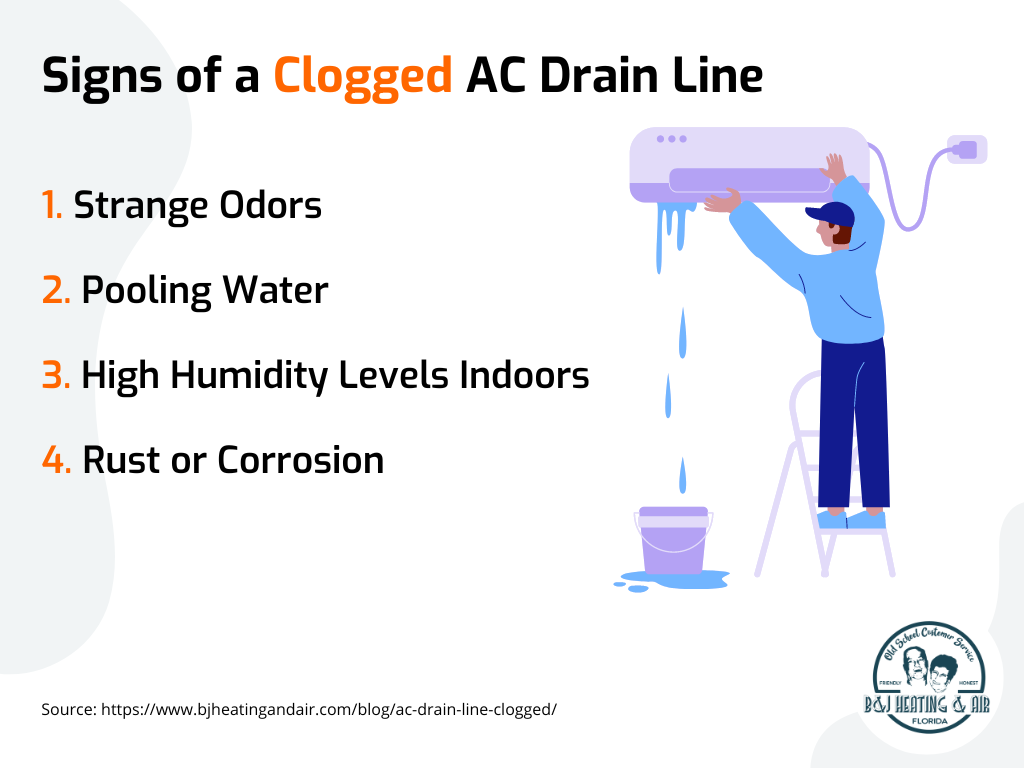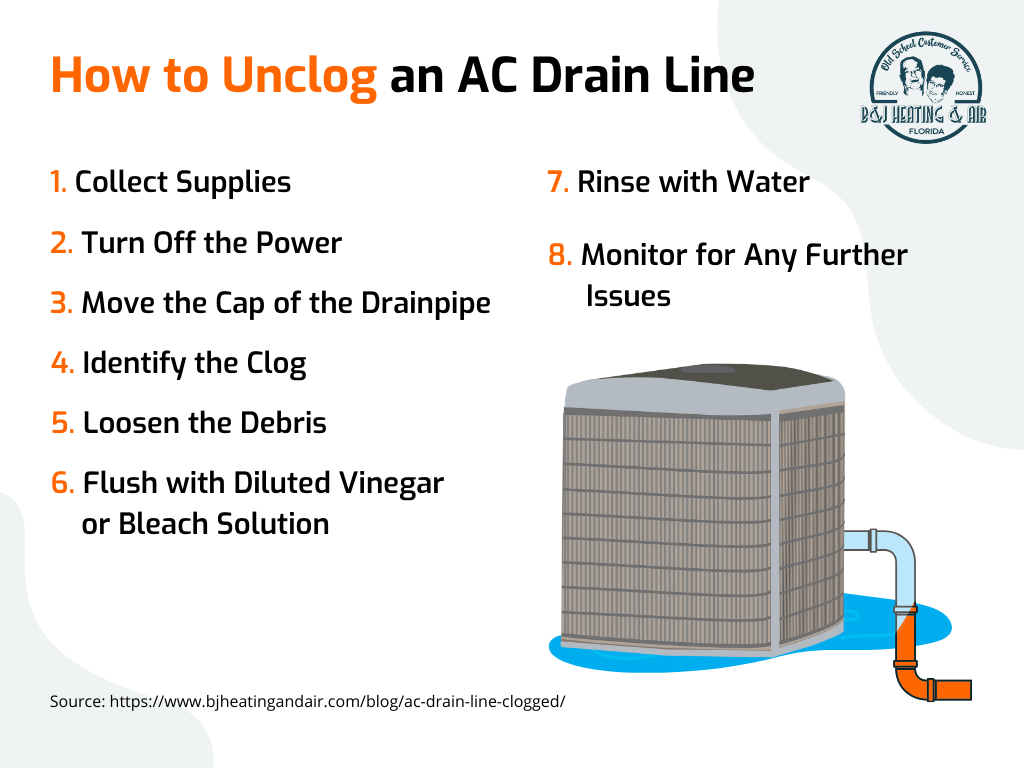What Happens If an AC Drain Line Is Clogged?
Air conditioning units are the unsung heroes of our hot summer days, keeping us cool and comfortable in the midst of scorching temperatures. So, when something goes wrong with our AC unit, we are usually quick to notice.
One of the common issues that AC units face is a clogged drain line. This can lead to various problems, from reduced cooling efficiency to potential water damage in your home. In this article, we will discuss what exactly happens when an AC drain line is clogged and how you can prevent and fix this issue. Let’s jump right in:
What is an AC Drain Line?
Before we can understand what happens when an AC drain line is clogged, it’s important to know what the drain line actually does.
An AC drain line is a pipe attached to your air conditioning unit and allows excess water produced during the cooling process to be drained out. This water comes from the humidity in the air and condenses on the evaporator coil inside your AC unit. Without a drain line, this excess water would just collect inside your HVAC system, leading to potential damage , among other issues.
What Happens if an AC Drain Line Keeps Clogging?
When an AC drain line is clogged, it can have several consequences for your air conditioning unit. Let’s take a look at some of the most common ones:
Reduced Cooling Efficiency
A clogged drain line means that the excess water produced by your AC unit has nowhere to go – so it will continue to build up. This makes it harder for your HVAC system to cool the air, resulting in reduced cooling efficiency. You may notice that your home doesn’t feel as cool as it usually does, even when the air conditioner is running.
Water Damage
If the clogged air conditioner drain line is not addressed, the excess water will eventually overflow from the drain pan onto your floors or walls. This can cause water damage and potential structural damage. Not only is this a hassle to clean up, but it can also be costly to repair.
Mold and Mildew Growth
As the stagnant water sits in your HVAC system, it creates the perfect environment for mold and mildew to grow. Once mold and mildew grow, they can spread quickly and cause health issues for you and your family. This is especially concerning for those with allergies, weak immune systems, or respiratory problems.
Signs of a Clogged AC Drain Line
It’s essential to identify a clogged AC system drain line as soon as possible to prevent these issues from occurring. But how do you know if your air conditioner drain line is clogged ?
Here are some signs to look out for:
1. Strange Odors
If there’s a clog in your AC drain line, you may notice a musty smell coming from your vents. This is a clear indication that there is stagnant water sitting in your air conditioning system. The longer the water sits, the stronger the odor will become.
2. Pooling Water
Another telltale sign of clogged AC drain lines is pooling water in and around your unit. If you notice water around your air conditioner, it’s essential to address the issue immediately before it causes any damage.
3. High Humidity Levels Indoors
AC drain line clogs can also increase indoor humidity. This can make your home feel uncomfortably muggy, and you may notice condensation on windows or walls. If you notice this issue, it’s best to have your AC system inspected by a professional.
4. Rust or Corrosion
In severe cases, a clogged AC drain line can cause water to leak onto the unit’s metal components. This can lead to rust or corrosion, damaging your system and requiring costly repairs.
How to Unclog an AC Drain Line
If you suspect your AC drain line is clogged, it’s best to contact a professional HVAC technician for assistance. However, there are a few steps you can take to try and unclog the drain line yourself:
1. Collect Supplies
You will need a wet/dry vacuum, vinegar, and hot water to unclog AC drain lines.
2. Turn Off the Power
Before attempting any DIY repairs, make sure to turn off the power to your air conditioning unit.
3. Move the Cap of the Drainpipe
Locate the drainpipe on your air conditioner unit and carefully remove the cap. This will allow you to access the clog.
4. Identify the Clog
Using a flashlight, shine it down the drainpipe to identify the location and severity of the clog. This will also help you determine if it’s a simple blockage or if something more significant is causing the issue.
5. Loosen the Debris
Using your wet/dry vacuum, gently suction out any debris or buildup that may be causing the clog. Be careful not to push the obstruction further into the AC drain line.
6. Flush with Diluted Vinegar or Bleach Solution
Once the debris has been removed, you can try flushing the drainpipe with a diluted solution of vinegar or bleach. This can help to dissolve any remaining buildup and clear the clogged AC drain line. But be cautious – too much vinegar or bleach can damage your AC unit.
7. Rinse with Water
After flushing, run hot water down the drainpipe to help clear any remaining debris and ensure the drain line is fully unclogged.
8. Monitor for Any Further Issues
Once you’ve completed these steps, turn the power back on and monitor your AC unit for any further issues. If the drain line continues to clog, it may be a sign of a larger issue, and you should contact a professional for assistance.
Trust the Professionals
While it always seems tempting to tackle DIY repairs, sometimes it’s best to trust the professionals. They have the knowledge and experience to safely and effectively unclog your AC drain line without damaging your unit.
At B&J Heating and Air Conditioning , our team of experts is always ready to help with any AC maintenance and repair needs. Our technicians are trained and equipped to handle any clogs or blockages in your AC drain line. Plus, we offer 24/7 emergency services for those unexpected issues that just can’t wait.
Don’t let a clogged AC drain line disrupt your comfort. Contact us today to learn more about our services!

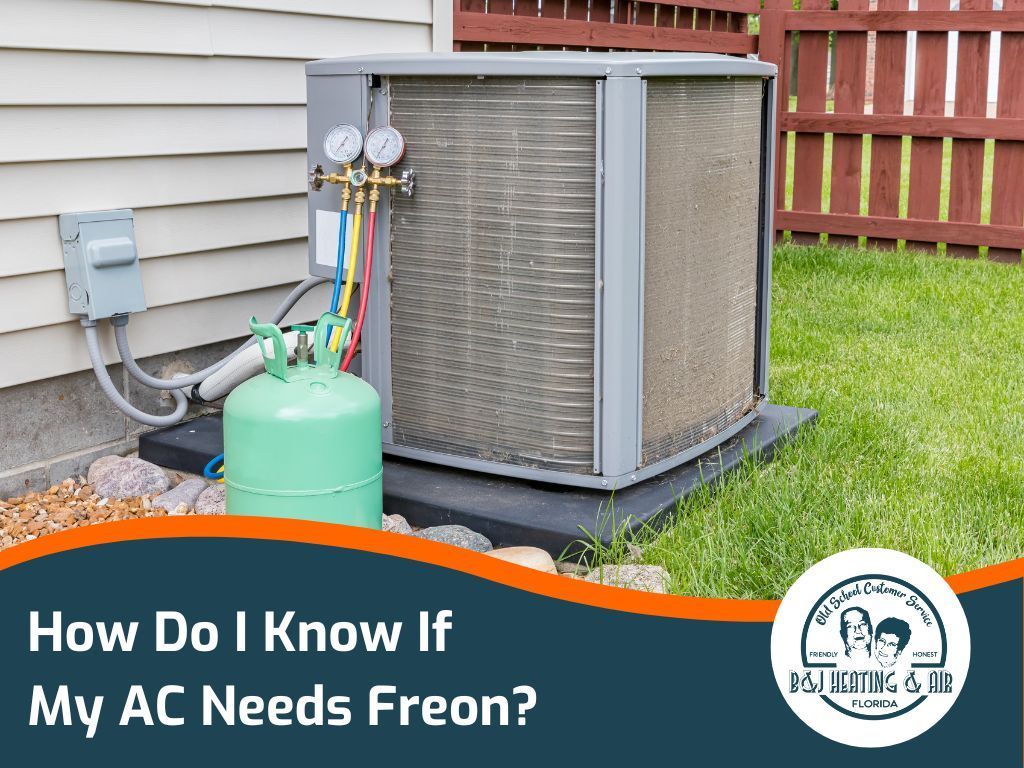




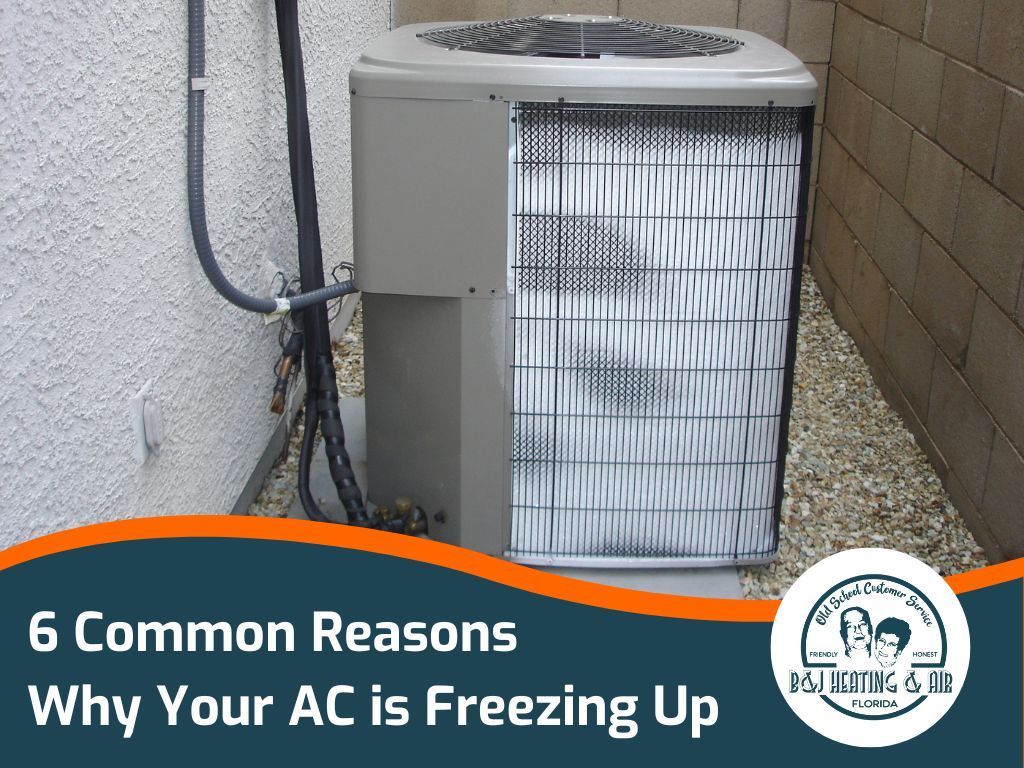


Quick Links
Services
Connect With Us
Mon - Fri: 7:30 AM - 5:00 PM
Sat- Sun Closed
License #: CAC1819389


